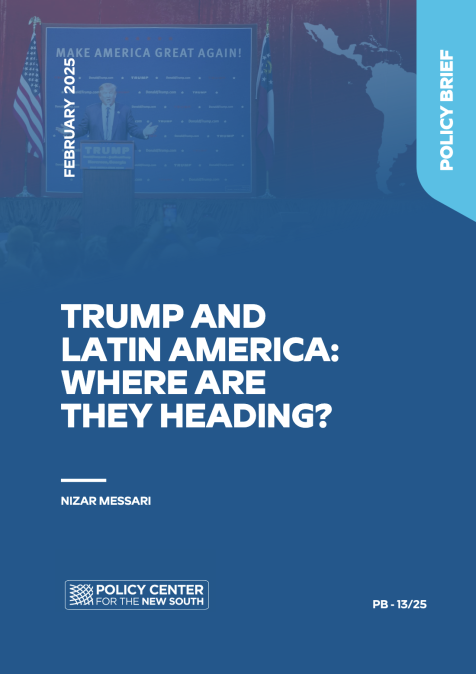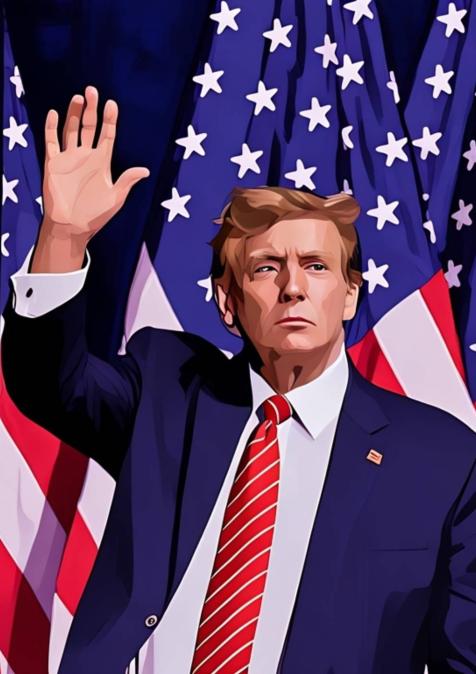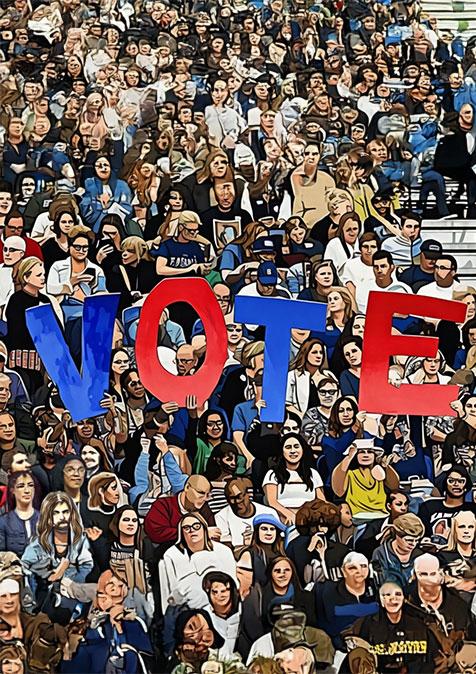Publications /
Opinion
Beyond partisan rhetoric, November's election in the United States can determine America's approach to a rapidly shifting world order. Donald Trump's first term, from 2016 to 2020, marked a historic departure from the post-Second World War bipartisan consensus. His ‘America First’ approach introduced a transactional view of international relations that continues to shape the current political landscape. This approach was seen in actions such as Trump’s withdrawal from the Paris Climate Agreement, renegotiation of the North American Free Trade Agreement (NAFTA) into the United States–Mexico–Canada Agreement (USMCA), and the implementation of widespread tariffs, mainly targeting China.
This rupture reflected legitimate concerns among a significant part of the American electorate regarding the costs and benefits of U.S. global commitments. Trump transformed these anxieties into a doctrine that fundamentally questioned the value of the traditional alliances and multilateral institutions that had long underpinned American global influence. His criticism of NATO members' defense spending, skepticism toward the World Trade Organization, and the attempt to withdraw from the World Health Organization during the COVID-19 pandemic exemplified this philosophical shift in American foreign-policy thinking.
Kamala Harris’s approach to foreign policy, meanwhile, combines elements of continuity from the Biden administration with her more assertive characteristics. Her strategic vision emphasizes strengthening international alliances on multiple fronts, from traditional NATO reinforcement, to newer partnerships including AUKUS (Australia, United Kingdom, U.S.) and the Quad in the Indo-Pacific, aimed at counterbalancing Chinese and Russian influence.
On economic issues, Harris prioritizes multilateral agreements, such as the Indo-Pacific Economic Framework (IPEF), and advocates for greater technological cooperation in strategic sectors, particularly in emerging technologies and cybersecurity. While Harris has taken positions on humanitarian and human rights issues, including calls for a ceasefire in Gaza, her stance has drawn both support and significant criticism, with some arguing for more decisive action and others questioning the effectiveness of her approach. Her foreign policy also emphasizes environmental and gender issues as key priorities.
The divergent approaches of Trump and Harris are particularly evident in climate policy. While Harris views tackling climate change as a cornerstone of American foreign policy, supporting the Paris Agreement and global sustainability initiatives, Trump emphasizes energy independence through fossil-fuel expansion and rejects international environmental commitments that might constrain U.S. autonomy. Harris advocates for a climate-finance framework and technological cooperation on renewable energy. Meanwhile, Trump promotes American energy dominance through increased oil and natural gas production, arguing that this strengthens U.S. geopolitical leverage.
Though both acknowledge the challenge posed by China, their responses differ. Harris advocates for a multilateral strategy, focusing on coordinated actions with allies, particularly on intellectual property protection and maritime security in the South China Sea, while supporting technology export controls and maintaining certain scientific exchanges. Her approach emphasizes ‘de-risking’ rather than ‘decoupling’ from China, retaining Trump-era tariffs while introducing new targeted measures. This includes restrictions on high-tech exports deemed critical to national security, and efforts to strengthen domestic manufacturing through legislation subsidizing semiconductor production and other strategic technologies. Trump favors unilateral action focused on trade disputes and tariffs, proposing more aggressive measures to decouple critical supply chains and restrict Chinese investment in strategic sectors. His approach includes the potential expansion of tariffs to new industries, and stricter controls on technology transfer.
Ukraine remains a critical point of divergence, highlighting broader differences in their views on American leadership and the international order. Harris supports robust, continued assistance as part of a wider commitment to the rules-based global order, emphasizing the strategic importance of preventing Russian expansion while supporting the European security architecture. Trump has signaled a preference for reduced American involvement, arguing for greater European responsibility in regional security, and suggesting the possibility of a negotiated settlement that might include concessions to Russian interests.
These divergences reflect more profound political shifts within American society, driven by rapid social and economic transformations that challenge existing political structures. The impact of automation, artificial intelligence, and digital transformation has created new vulnerabilities and opportunities that reshape traditional foreign-policy calculations. The impact of emerging technologies on foreign policy manifests through several critical domains: cybersecurity challenges, evidenced by state-sponsored election interference and 5G infrastructure battles; AI competition between major powers, particularly the US-China race for technological supremacy and control over semiconductor supply chains; digital economic transformations, including cryptocurrency's challenge to traditional financial systems and tech platforms' growing geopolitical influence; and military innovations through autonomous weapons systems and AI-enhanced capabilities. This phenomenon extends beyond the United States, affecting democracies worldwide and even authoritarian regimes struggling to adapt to fundamental global communication, commerce, and security changes.
The outcome of the 2024 U.S. presidential election will have implications beyond traditional foreign policy considerations. At stake is the nature of American global engagement and how the U.S. will address fundamental challenges in an era of transformation. While Harris proposes reaffirming U.S. leadership through multilateralism and democratic values adapted to new global challenges, Trump offers a vision of national autonomy and transactional pragmatism that challenges conventional diplomatic approaches and prioritizes bilateral deal-making over institutional frameworks.
This choice will influence how the world navigates geopolitical and economic turbulence in the coming decades. In an era when global challenges demand increasingly sophisticated and interconnected solutions, from pandemic preparedness to artificial-intelligence governance, the decision between these contrasting approaches will reverberate far beyond U.S. borders.
[1] Fernanda Magnotta, Ph.D. in International Relations from San Tiago Dantas Program (UNESP/UNICAMP/PUC-SP), is a professor and U.S. policy expert focusing on U.S.-China-Latin America relations. She heads the International Relations Program at FAAP in São Paulo, serves as Senior Fellow at CEBRI in Rio de Janeiro, and Global Fellow at the Wilson Center in Washington DC. A Fulbright scholar at USC (2022-2023), she regularly provides analysis for major media outlets in Brazil and the U.S., contributes as a columnist for UOL Portal and international analyst for CNN Brazil, while leading projects involving officials, researchers, and private sector leaders across both countries.








